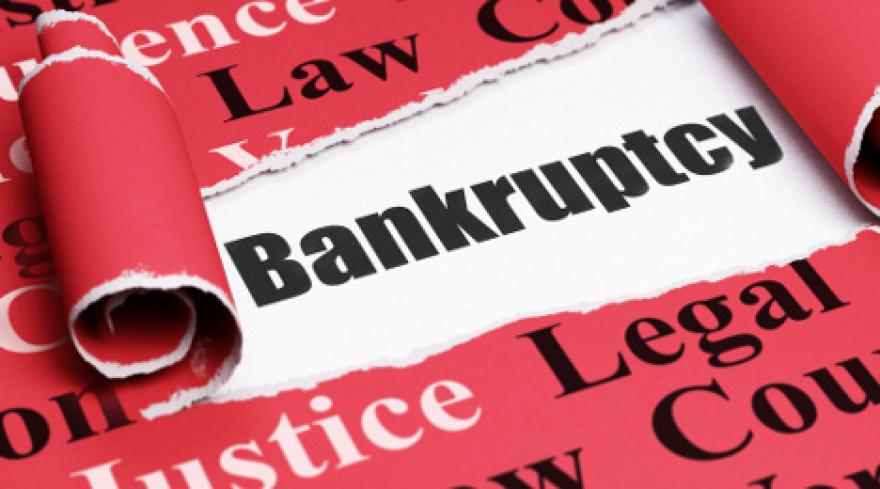In the United States, as it is in pretty much everywhere else in the world, filing for bankruptcy or Chapter 7 is one of the most life-altering occurrences an individual can go through. It’s actually ranked in the same category with divorce, disability, severe illness or the loss of a loved one. This B word has such a negative stigma to it that some people don’t even consider the term part of their vocabulary.
That, however, doesn’t mean that they are immune to bankruptcy. It could happen to anyone and just because someone files for bankruptcy doesn’t mean that they were irresponsible with their personal finances. There are very many reasons why people file for Chapter 7, 11, 12 and 13:
-Unfavorable market condition
-Lack of financing
-Poor decision making when it comes to investments
-Medical expenses
-Excessive use of credit
-Job loss
-Unexpected disasters and expenses
-Divorce

As you can see, it doesn’t always come down to frivolous expenditure. Sometimes it is just about bad luck. But whenever fate deals you a bad financial hand, filing for Chapter 7 isn’t always necessarily the answer. There are steps you can take in your life to avoid bankruptcy.
7 Tips to Help You Avoid Bankruptcy
One of the main reasons why people file for bankruptcy is because they find themselves underwater financially. This means that they have gone into insolvency and there is no logical way through which they can service their debts. But with the right kind of planning, you can always figure a way out instead of hiring bankruptcy lawyers and filing for bankruptcy. Here are some things you can try:
1. Negotiate Your Debt Repayments
What you need to understand is that lenders are always for the idea of getting their money back. Nobody wants to write off debt and filing for bankruptcy often means that they will most likely only get a small percentage to the dollar owed. It is therefore prudent and highly encouraged that you negotiate with these people and come to some kind of debt repayment schedule. You could:
Consolidate your debt: This means putting it all under one roof so you have only one major monthly repayment.
Settle your debts: This often means talking to everyone you owe and asking them for a grace period even it means that you will have to pay higher installments down the line. Some people might require you to attach your assets to this promise. The difference here is that you get to keep possession of your stuff and get a grace period to pay people back.

Whichever the case, it shows that you have good intentions and that you are willing to pay them back. Most lenders will be for the idea.
2. Sell Some of Your Property Yourself
If you have assets, you can sell them to settle your debts. This might seem harsh for most people but you need to remember that filing for bankruptcy pretty much means the same thing only in this case you have no legal control whatsoever. If you take the initiative to sell your own property to pay back your debts, chances are you will get a better deal for them.
3. Borrow Money from Friends and Family
Although this is never really a good idea because money can cause a serious rift between you and family members, when your back is against the ropes you might have to resort to it. Borrowing from friends and family means that you are transferring the debt to a more lenient party with whom you can negotiate better terms of repayments. Just make sure you pay them back!

4. Make Extreme Sacrifices
If you are close to bankruptcy you may need to restructure your entire financial system. Cutting back on most luxuries and resorting to a life of the bare minimum will help free up some money to go towards servicing your debts. This will not be easy for most people but it will be necessary.
5. Refinance or Restructure Your Mortgage
If you have the option, refinancing your mortgage can give you more cash to divert towards debt repayments. But if that is not an option then you can talk to your mortgage lender and see whether or not you can restructure your repayment plan. Most lenders like https://www.a1credit.sg are not terribly opposed to devising a new payment plan under the original agreement. This temporary payment plan will have you paying less every month and diverting the extra cash towards your other debts. But with the right kind of planning, you can always figure a way out instead of hiring bankruptcy lawyers and filing for bankruptcy.
6. Increase Your Income
There is always something more you can do to earn money. You can always get a second job or a part-time consultancy gig if you are a professional. Heck you can even take a third job. As long as you leave out six hours for sleep every day so you do not go crazy, you can take time off once you have paid all your debt. This might surprise you but once your body gets accustomed to the stress of working so hard you will make quick headway with your debt repayments from all the extra money you make and it will give your creditors extra faith in your ability to pay them back.
7. Hire A Professional Financial Planner
Although this might sound counterintuitive since you are not looking to spend more money but save it, the truth is that professional financial planners have a host of tricks that can help you restructure your debt repayment in a more financially sound manner. They might even be better at negotiating your debts for you.
It will take work and some level of sacrifice but it is all worth it to avoid filing for bankruptcy.












Leave a Reply